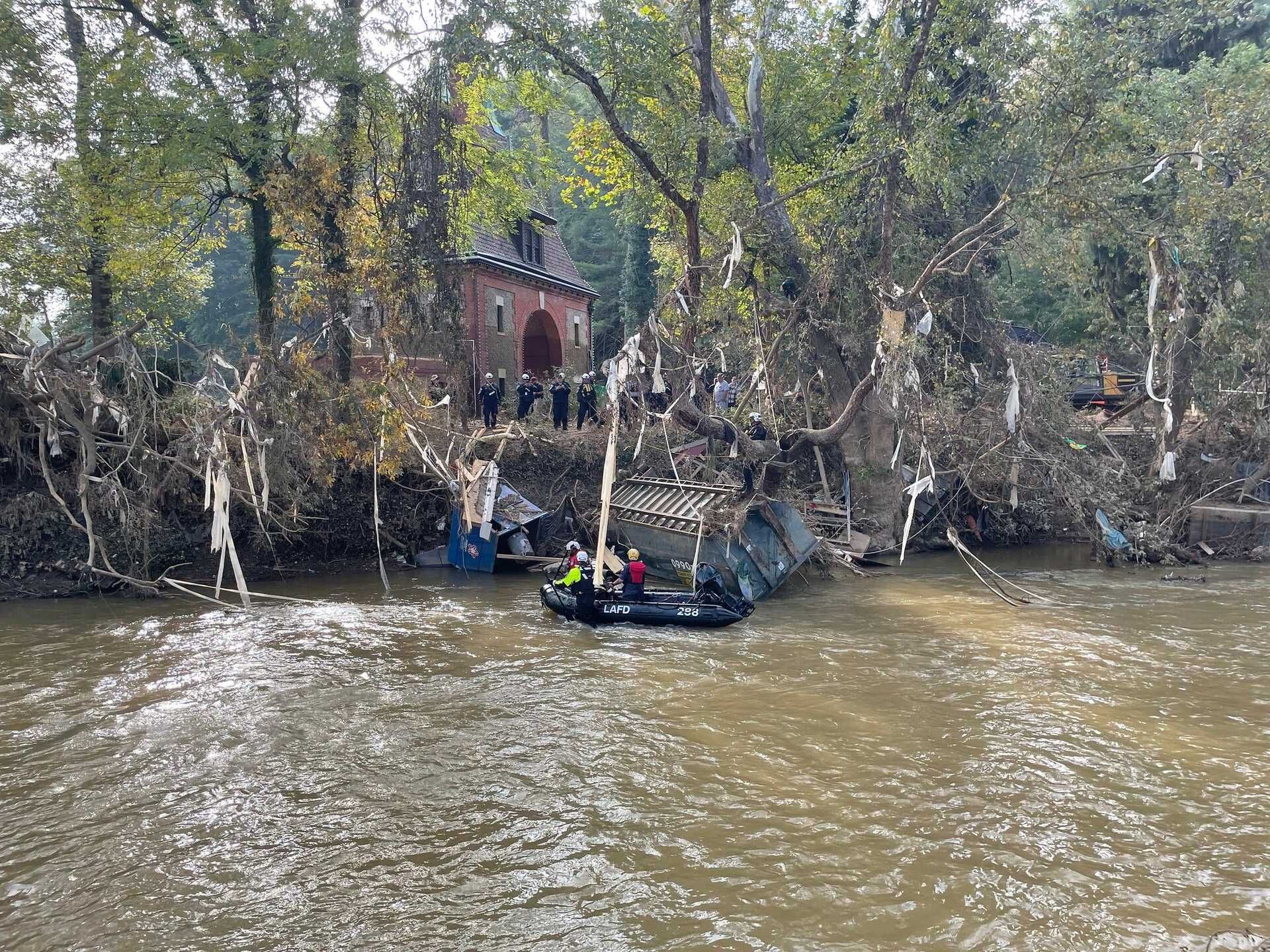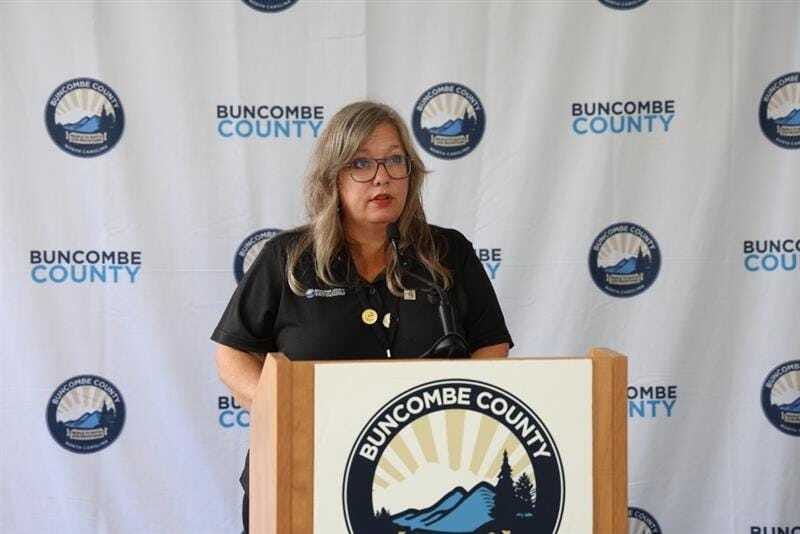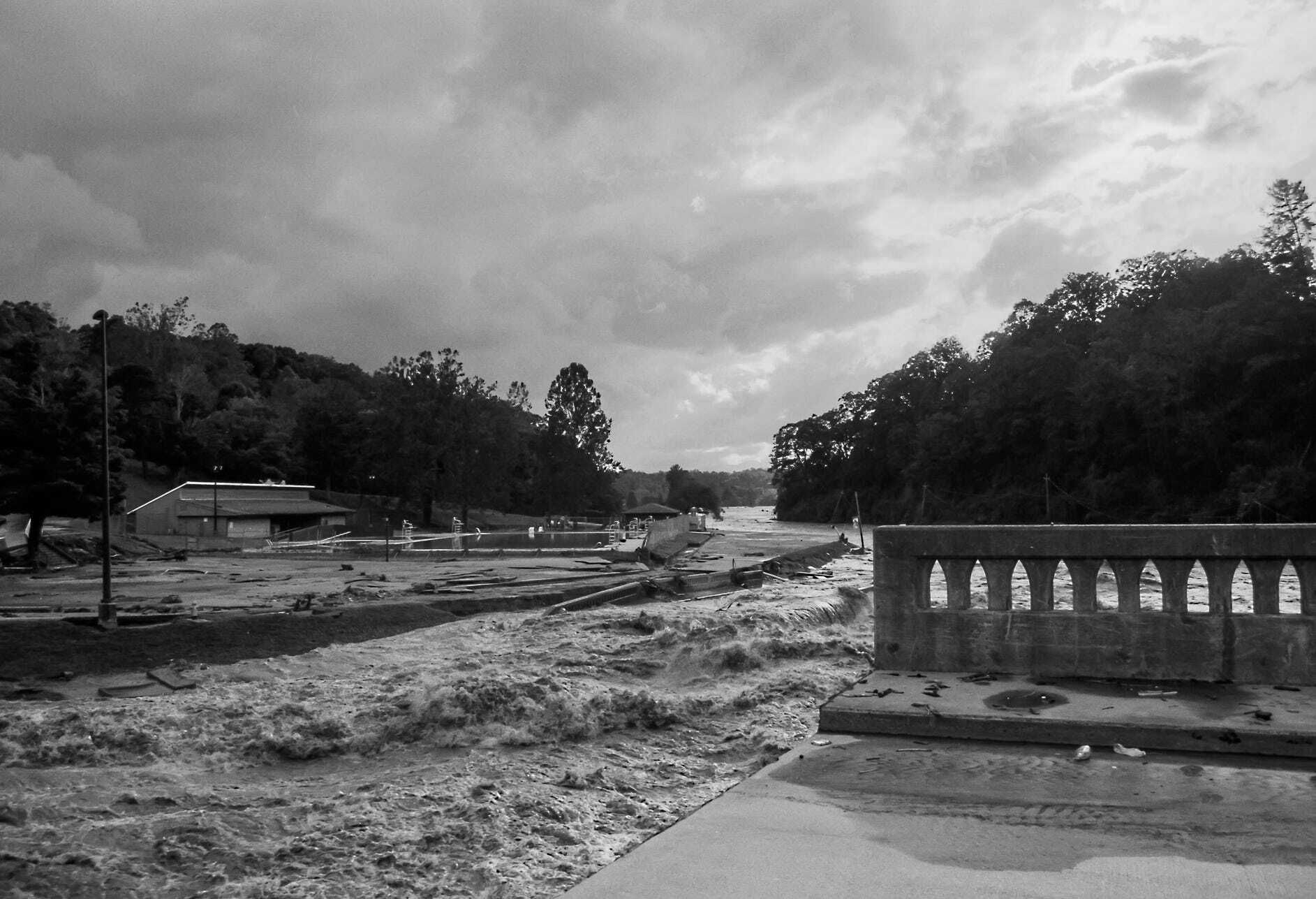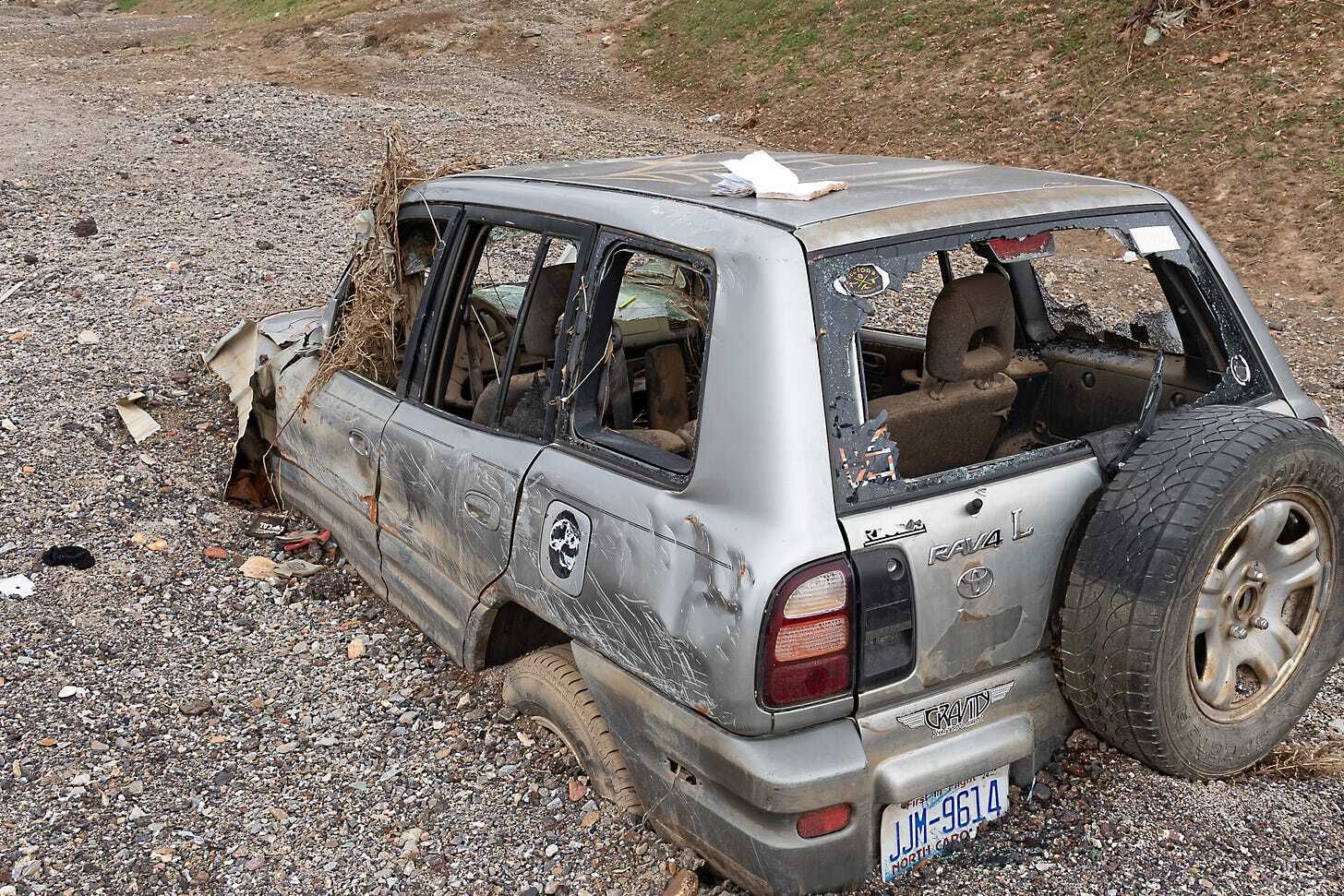
NOTE: This week, I’m turning the newsletter over to Jessica Wakeman, an Asheville-based journalist who has extensively covered Hurricane Helene and its aftermath for this newsletter and many other outlets. You can find her work here.
Last September, in the wake of Hurricane Helene, Buncombe County was in chaos. Trees blocked roads. Rivers washed away bridges. Debris scattered far and wide. Tens of thousands of people had no electricity or potable water. Spotty Internet and phone service led to isolation. Gas was hard to come by. People needed their medications, or their specialized baby formula, or anything else they took for granted in normal daily life.
In the midst of this tumultuous time, one thing was consistent for many people: Buncombe County offered twice-daily briefings about where to find water and food, safe routes out of the region, and every step of the recovery process. Aired on Blue Ridge Public Radio, the briefings became appointment listening.
Lillian Govus, Buncombe County’s Communication and Public Engagement Director, delivered those briefings. But the experience behind the scenes was unlike anything Govus had ever done before; her typical job involves managing external communications for the county and working with the media. Beginning with her very first night at the county’s Emergency Operations Center, she was abruptly thrown into a role that brought her up-close to death and disaster. In Buncombe County, 43 people died from Helene and 107 people lost their lives across Western North Carolina.

This month, Govus was honored with the National Communicator of the Year Award by the City-County Communications and Marketing Association for her handling of government communications during Helene. She spoke with the North Carolina Rabbit Hole about her experience a year ago.
This interview has been condensed for length and edited for clarity.
NORTH CAROLINA RABBIT HOLE: When were you first aware of how Hurricane Helene would turn out for Western North Carolina?
LILLIAN GOVUS: Earlier in the week of September 22nd, the National Weather Service started calling us individually. Usually ahead of storms, you’ll have webinars where they go over modeling. But in this case, they were calling us directly and saying, “This is going to be a catastrophic and life-threatening event.” Each phone call got worse in terms of the projections. The modeling was showing rivers cresting at 20 feet above [flood stage].
RABBIT HOLE: When the storm began to hit on the night of September 26, what did you do?
GOVUS: I told [my husband] I was going to have to go to work and staff the Emergency Operations Center—which is a 24-hour operation—and sleep there. I packed maybe three changes of clothes and an air mattress in my truck. Things were moving much faster than the Weather Service projections had outlined.
We worked all night. I had met with my team ahead of the storm to talk about what our communications philosophy would be. But we did not anticipate that all of the communication channels that we relied on would be gone.

RABBIT HOLE: What were those first 24 hours in the Emergency Operations Center like? What were you doing?
GOVUS: [The 911 system] had 5,500 911 calls in the first 24 hours, and then it just kind of dropped. People were taking to social media to send messages through Facebook. [The County has] another email distribution called Let’s Talk—people use it to complain about things like potholes. But we started getting 911 messages through Let’s Talk. [My colleague] and I were doing all of the emergency communications going out to the community. But then we realized we were getting all of these emergency communications in. And because we were in the same facility with 911 we would take those over to 911, and say, “Is this in? Do you have this?”
RABBIT HOLE: Do any of the social media messages from people asking for help stand out to you?
GOVUS: There was a woman who contacted me about her dad who was trapped on top of the bathroom at the East Asheville KOA. She was trying to get help for him. She kept calling me to check on when we would be able to dispatch to get to her dad. And all I could tell her was, “He’s in the queue.” But we had so many rescues that we were responding to that I couldn’t give her a timeline. I kept staying in touch with her. All of these messages haunted me in the time after. After the immediate emergency, when you were able to sleep for four or five hours, those were the things that stayed with you.
I had recently lost my dad, and so I had been thinking about that [father and daughter] specifically. I followed up with her a couple weeks later. I said, “I just can’t stop thinking about your dad. I hope I’m not overstepping, but I just wanted to check in.” She wrote me back that her dad had survived, but his girlfriend had been killed. Then I saw the story of the girlfriend show up in one of the pieces of [media] coverage. That was really hard to know. I’m not a 911 operator, right? That’s not a space where I have been trained or was prepared going into the storm to serve in that capacity.
RABBIT HOLE: Being in the Emergency Operations Center, you must have been getting a lot of upsetting information coming in.
GOVUS: We were getting loud blasts of information. Old Fort Mountain just fell down on I-40. This bridge is out. A house just floated down Tunnel Road. All of that was happening, and it seemed so wild and apocalyptic. If anyone in Hollywood was, like, “I have a movie proposal: Here’s a scene where you don’t have roads, you don’t have bridges, you don’t have power, you don’t have internet, you don’t have phones, you can’t fly helicopters because the winds are too strong— every avenue is taken away,” they’d be like, “That’s preposterous!” It very much felt, in that moment, unbelievable. There was no way to believe all of the things that we were hearing.
RABBIT HOLE: Were you able to sleep at all those first few nights?
GOVUS: We weren’t really [sleeping]. Maybe 30 minutes here or there. But the office where I was sleeping—where my air mattress was—had a 911 scanner. So even when I would try to rest, all I would hear was the rescues, the calls, everything that was happening. Once the waters were receding, we were able to get a little bit of rest because we weren’t doing 24/7 rescues.

RABBIT HOLE: Tell me about the emergency briefings that you started doing twice a day starting the Saturday after the storm.
GOVUS: That really became the lifeline for people in a way that we didn’t anticipate. When I realized this was the only intersection of our survivors and the resources that they needed, we were pulling everyone we could in to make sure that we were getting the critical information to the community.
We were trying to keep it brief, because we knew people were sitting in their cars listening to the radio. They were wasting their batteries or their gas, and those were finite resources that they couldn’t replenish. So we were trying to be really intentional with the most important information.
RABBIT HOLE: How did you stay in touch with your own family during this time? You spent 13 days at the office without going home, correct?
GOVUS: My priority at that time was only on the community response. Anytime I would get contacted by someone personally, I would just ask my sister to follow up with them. I didn’t have any time to communicate with my family. But I do remember at one moment, sending my husband a message saying, “I just want to let you know I love you. I’m sorry that this is happening. I don’t know when I’ll see you, but I hope you’re safe.”
RABBIT HOLE: These sound like very traumatic experiences. Did you seek therapy after the initial crisis?
GOVUS: Luckily, I had been seeing a therapist before the storm to try to work on my grief following [my father’s passing].
It’s been a grief process. I grew up in western North Carolina, in Rutherford County. It was strange to feel grateful that my dad had passed away before the storm, since I knew that I wouldn’t have been able to check on him.
But also, I’m glad that he didn’t have to see what happened in Western North Carolina—such a beautiful and special place. To see the amount of devastation that has occurred—really, it’s heartbreaking.